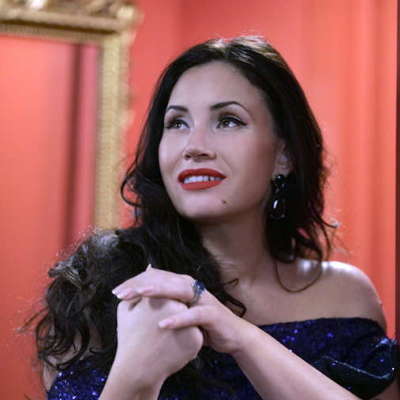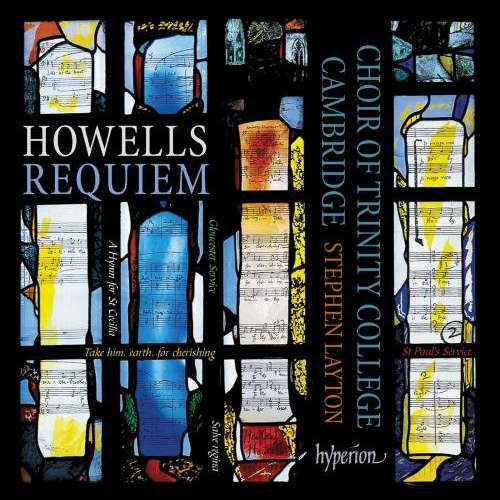- Richard Taruskin
- harmonia mundi usa
- Dan Iordăchescu
- payment
- Yuri Temirkanov
- Piccadilly
- Boris Brott
- Judith Ward: In manus tuas
Changing Tastes
GIUSEPPE PENNISI was in the audience for Leonard Bernstein's 'Mass'
Before entering into the merits of the performance with which, on 1 July 2022, the summer season of Teatro dell'Opera di Roma was inaugurated, it is necessary to make a reflection about the method of programming. The practice is that the summer seasons of opera foundations, especially if in large outdoor spaces, are designed to attract an audience that usually does not go there, hoping that it will return in the winter season. Thus 'popular' titles such as Rigoletto, Traviata and Carmen are programmed. At one time, the summer season of the Teatro dell'Opera included a Wagnerian title, usually Lohengrin in rhythmic translation into Italian.
So, inaugurating with the Italian premiere in a stage version of Leonard Bernstein's Mass is undoubtedly an important innovation. The work was performed once in Rome, in fact in the Vatican City State, in a concert version and for guests by invitation. It had been suggested to John Paul II by a close friend (and great musician) Krzysztof Penderecki. This had led to the overcoming of the reticence and reservations of some American ecclesiastical hierarchies when the work debuted in 1971, at the suggestion of Jacqueline Kennedy, for the inauguration of the Kennedy Center for Performing Arts that stretches on the right bank of the Potomac.
Mass is defined by the composer as 'a theatrical work for soloists, chorus, actors and dancers'. Thus, it involves all the artistic masses of the theatre: chorus, children's chorus and various soloists - two baritones, a mezzo, a bass, various actors and the corps de ballet with two pairs of first dancers. It is also a way to facilitate cohesion between the artistic masses of the theatre. Strictly speaking, it requires two orchestras: one mainly of strings, in the pit, and one of percussion, brass and jazz instruments on stage. In Rome, they were both in the mystical gulf - ie in the pit.
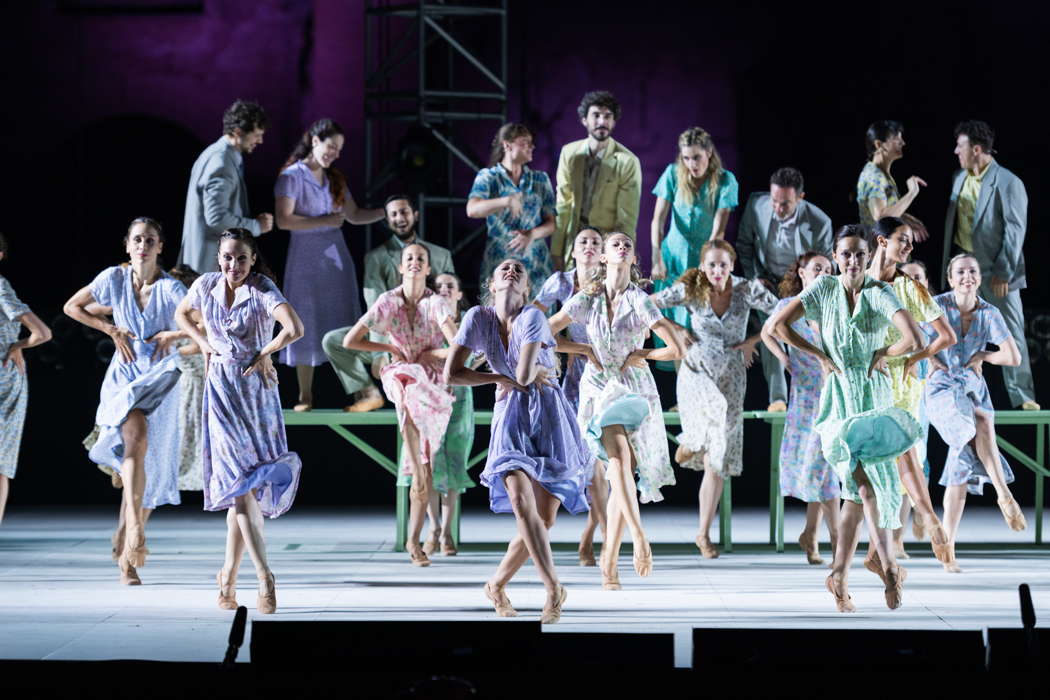
Teatro dell'Opera di Roma's corps de ballet performing in Leonard Bernstein's Mass. Photo © 2022 Fabrizio Sansoni
In 1971, I saw and listened to Mass - I was living in Washington DC at the time - and I jealously kept the album with two LP records released by Columbia for the occasion with Bernstein conducting and a then very young Alan Titus in the role of the celebrant. Since that time, another half dozen records have been released and Mass, although not well received at the first performance, has been seen and listened to all over the world.
The work begins with a bird-like flute solo that flashes around the hall to signify the Holy Spirit. Its final note is taken up by a solo boy of the choir. At the beginning all the artists are in harmony and in agreement. During the Mass, however, the street chorus begins to express doubts and suspicions about the need for God in their lives and about the role of the Mass. The street choir sings with Latin lyrics until they catch a line that turns into a complaint or a selfish boast; that is, Latin: dona nobis pacem (peace be with you) in street choir language: 'Give us peace now and peace to hold on to'. In this way, Bernstein intertwines and contrasts social commentary and prayer. The bitterness and anger of the street chorus continues to grow and make each of the subsequent meditations more bitter.
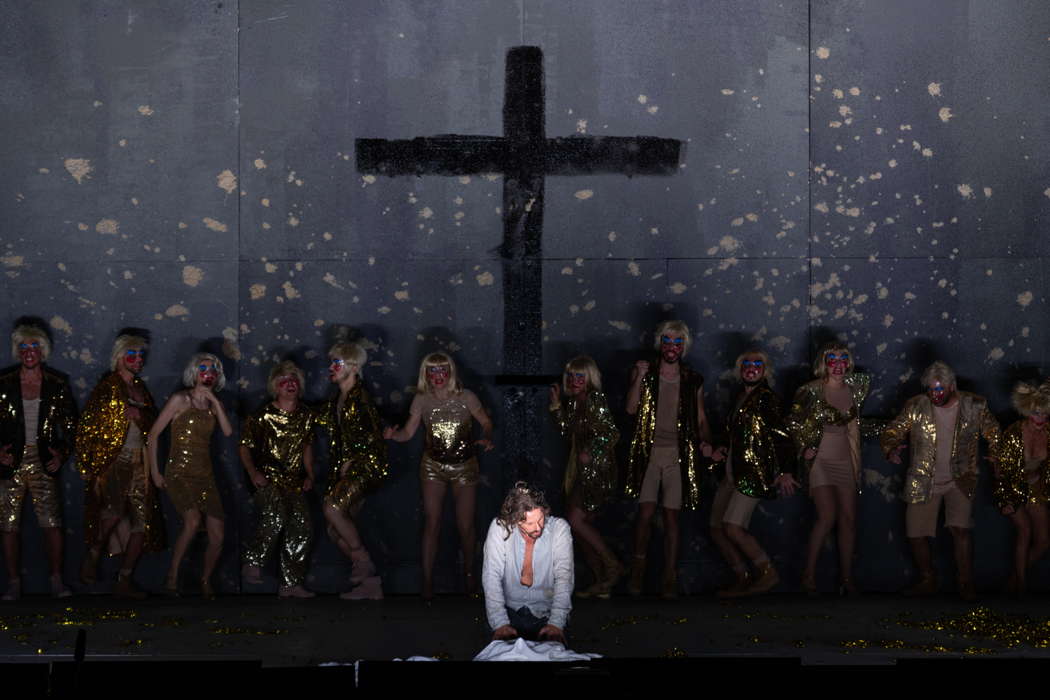
Markus Werba as the celebrant, with street chorus in Teatro dell'Opera di Roma's production of Leonard Bernstein's Mass. Photo © 2022 Fabrizio Sansoni
At the emotional climax of the work, the growing cacophony of the chorus complaints finally interrupts the elevation of the bread and wine. The celebrant, furious, throws the sacred bread, contained in an ornate cross, and the chalice of wine, smashing them on the floor. The other cast members collapse to the ground as dead as the celebrant sings a solo.
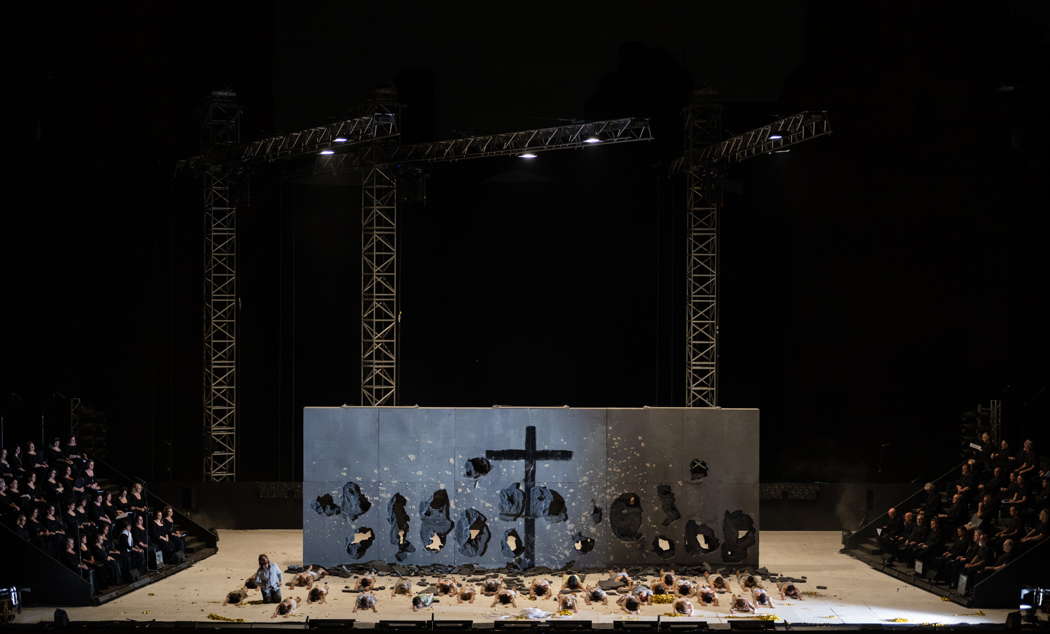
Markus Werba as the celebrant in Teatro dell'Opera di Roma's production of Bernstein's Mass at the Baths of Caracalla in Rome. Photo © 2022 Fabrizio Sansoni
This solo blends the unbelief of the chorus with its crisis of faith. He feels exhausted and wonders where the strength of his original faith has gone. At the end of his singing, he too collapses. A flute solo similar to a bird - the Holy Spirit - flashes here and there from several loudspeakers, to 'rest' on a single clear note. An altar boy, who was absent during the conflict, then sings a hymn of praise to God: 'Sing to God a simple song'.
This restores the faith of the three choruses, who join the altar boy, one by one, in his hymn of praise. They say to the celebrant 'Pax tecum' (Peace be with you) and end with a hymn asking for God's blessing. The last words of the opera are: 'The Mass is ended; go in peace'. All sorts of human conditions are shown: greed, lust, pride, insecurity, etc. It shows how little our humanity has changed and, therefore, how necessary the relationship with God still is.
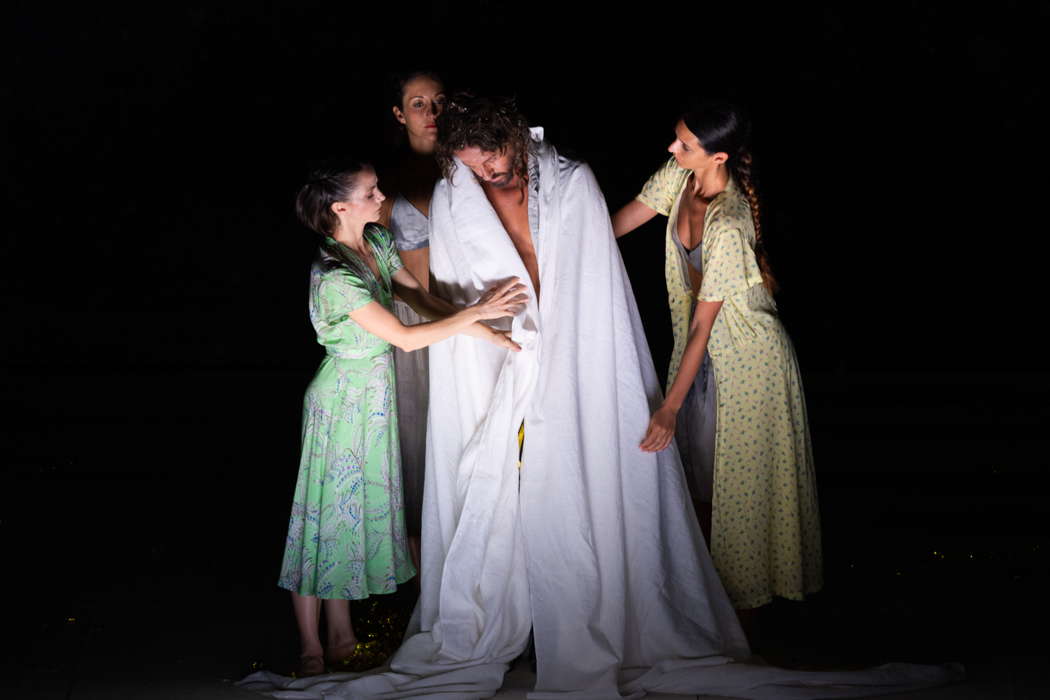
Markus Werba in Teatro dell'Opera di Roma's production of Bernstein's Mass in Rome. Photo © 2022 Fabrizio Sansoni
The plot is simple, and the libretto (by Bernstein himself) largely follows the canon of the Catholic Mass. In 1971, it caused a sensation as various genres (from melody to jazz) merged into the score. Moreover, the call for peace seemed provocative precisely at the inauguration of the Kennedy Center because, at that time, the Vietnam War raged.
I come to the Roman production. The direction by Damiano Michieletto - assisted, as always, by Paolo Fantin for the sets, Carla Teti for the costumes, Alessandro Carletti for the lighting and Filippo Rossi for the videos - was measured. The three choruses, prepared by Roberto Gabbiani, were excellent. The corps de ballet and the choreography by Sasha Riva and Simone Repele were very effective. Among the voices, that of Markus Werba, in the role of the celebrant, was spectacular.
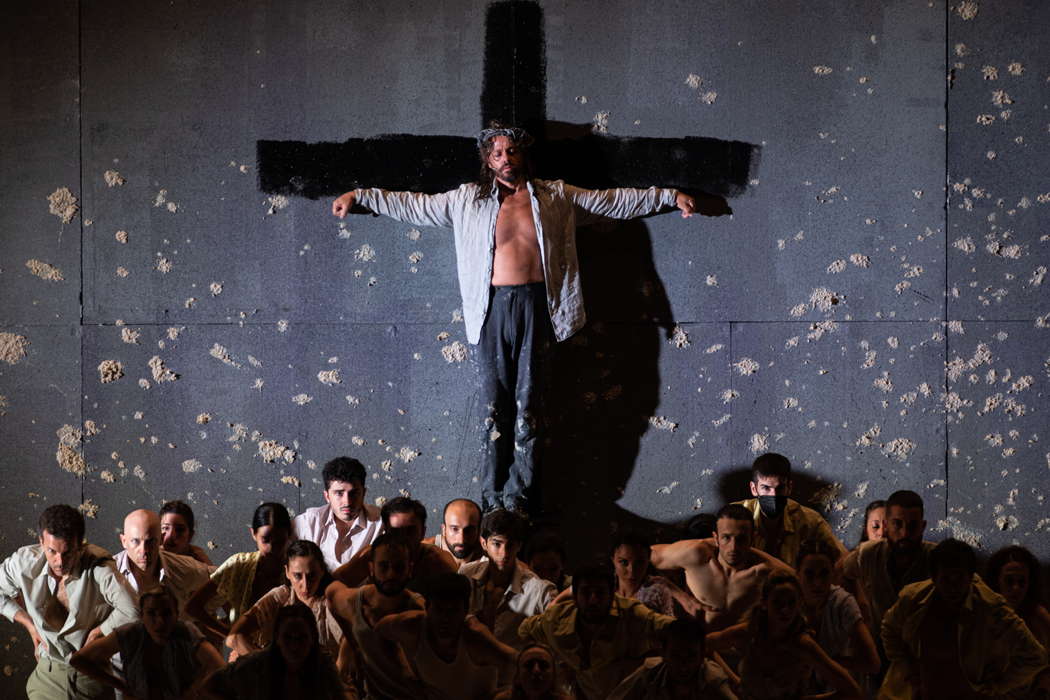
Markus Werba in Teatro dell'Opera di Roma's production of Bernstein's Mass. Photo © 2022 Fabrizio Sansoni
One last note. The theatre at the Baths of Caracalla welcomes 4,000 spectators. In spite of an unusual programme choice, on the opening night (1 July) there were 2,000 spectators. On 3 July 2022, when I saw the performance, the upper tiers had been closed and there was an audience of 1,500. The two hours of the show were followed by almost fifteen minutes of applause - a clear indication that the public and its tastes are changing.
Copyright © 5 July 2022
Giuseppe Pennisi,
Rome, Italy

ARTICLES ABOUT TEATRO DELL'OPERA DI ROMA


